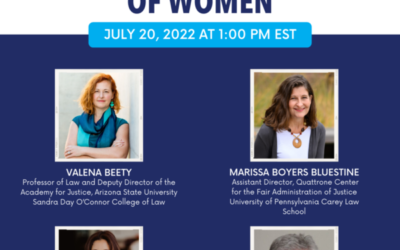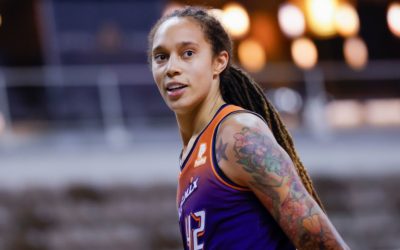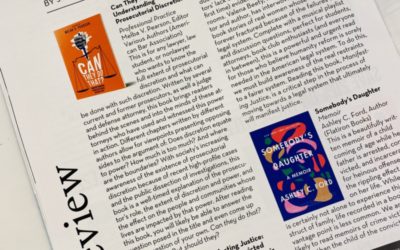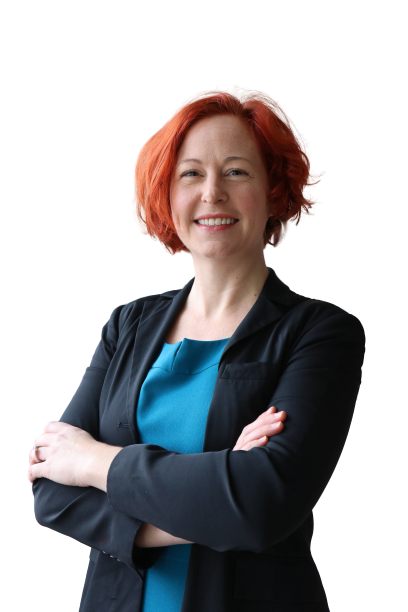Exonerations occur when a person convicted of a crime is officially cleared based on new evidence of innocence. Since 1989, there have been 3,000 exonerations as a result of mistaken eyewitness identifications, false accusations, false confessions and more.
The innocence movement has changed our laws and police practices by proving that innocent people are wrongfully convicted.
Valena Beety is a professor at Arizona State University’s Sandra Day O’Connor College of Law and the deputy director of the college’s Academy for Justice, a criminal justice center that seeks to connect scholarship and research with real-world reform. She is looking more deeply at how we can transform our criminal legal system and reexamine what we see as wrongful convictions.
She notes that more people are wrongfully convicted and in prison than those we can prove are factually innocent because the standard is incredibly high to prove innocence. DNA evidence may be destroyed, witnesses may have died, or a court may simply refuse to reverse a conviction based on the importance of finality. Beety also believes that a wrongful conviction is more than factual innocence, and there are people in prison who shouldn’t be incarcerated.
Founder of the West Virginia Innocence Project, a former federal prosecutor and an innocence litigator — litigating on behalf of incarcerated people who were wrongfully convicted — Beety teaches courses on wrongful convictions and criminal law, as well as women, gender and the law. She called on issues she discusses with her students and the center’s criminal policy work to help shape her new book, “Manifesting Justice: Wrongly Convicted Women Reclaim Their Rights.”
In writing the book, she pieced together two parts of her life — the part where she was a strong victim advocate and prosecutor, and the part where she was representing people who have been wrongfully convicted.
Beety spoke to ASU News to discuss her book, set to release on May 31.
Question: What is your book about?
Answer: “No crime wrongful convictions” are shockingly prevalent. In “Manifesting Justice,” I share the story of two of my clients, Leigh and her co-defendant Tami, who were wrongfully convicted of a crime they didn’t commit — a crime that didn’t even happen — while also exposing how their case went so wrong.
In a tragic twist of fate, Leigh and Tami had just left a drug rehab center in a rural Mississippi town when a friend, who came with them, overdosed. Leigh and Tami called 911 and an ambulance raced their friend to the hospital. A doctor at the hospital found signs of aggressive sex, and ultimately, brought in an expert who claimed he found bite marks indicating assault.
These weren’t just any bite marks; the expert alleged that half of the woman’s labia was bitten off. Instead of questioning this finding, the police and prosecutors assumed Leigh and Tami had assaulted their friend for no reason other than they were lesbians.
I’m also a queer woman. I wrote “Manifesting Justice” to show how women and LGBTQ+ people are wrongfully convicted, and to share tools for how they can be freed.
Q: Why did you decide to write this book?
A: This book is about overcoming shame and sharing our stories. My journey began 20 years ago as a rape victim advocate in college. I went to law school specifically to prosecute domestic violence and sexual violence. I used to think incarceration was the best way to stop cycles of violence. I was a carceral feminist. I no longer am. In this book, I wanted to look more deeply at how we can transform our criminal legal system and reexamine what we see as wrongful convictions.
This book brings together questions of whether we actually provide justice to victims, how we criminalize women and people in the LGBTQ+ community, and what role justice can play today. The purpose of the book is how to manifest justice.
I even include a checklist at the end of the book that includes steps we can take on a systemic and an individual level, because it’s very clear we have to change our criminal legal system.
Q: You called yourself a carceral feminist before you became an innocence litigator. What does that mean, and what made you move away from that?
A: As a carceral feminist, I firmly believed that the answer to violence in our society was prosecuting perpetrators and then incarcerating them. If perpetrators were separated away from society, they could no longer hurt people. I thought prisons would keep our communities safe. I didn’t realize that most of the people who go to prison will eventually be released from prison, and if they haven’t changed their patterns of behavior, they’ll keep behaving the same way. By making the false assumption that they are no longer part of society by being locked up, we aren’t looking at the full picture.
Incarceration is simply not the best way for people to change, nor the most realistic. Prison doesn’t resolve violent behavior or cycles of violence. We know that you’re more likely to commit a crime after you’ve been to prison. Incarceration has not been the solution I thought it would be. I still think there’s a place for prisons – appropriate cases and times for incarceration – but it’s not the catch-all solution that I once thought it was. We need to look at other solutions and avenues to truly address violence in our communities.
Q: Are marginalized groups affected more than others?
A: Yes. A disproportionate number of women of color and queer individuals are convicted due to racism, prejudice, coerced confessions and false identifications.
We don’t talk enough about women who are incarcerated, and in particular, marginalized women and women of color. While there are more men than women incarcerated in the United States, it doesn’t justify completely ignoring the problems particular to incarcerated women.
We have women in prison who are domestic violence survivors, who are rape survivors and fought back against their assailants and shouldn’t necessarily be serving lengthy sentences. We should acknowledge and recognize that many women who are incarcerated are also themselves victims.
Queer people and transgender people are criminalized for basic things such as not having an identification card that matches their gender or not behaving according to their gender. We also have a history of literally criminalizing the sheer physical expressions of being LGBTQ+.
Q: Why is this topic important?
A: Perhaps surprisingly, many people we prosecute and identify as criminals are wrongfully convicted in our system, over-sentenced for drug offenses or criminalized for their identities. This book addresses that there are millions of people incarcerated in the United States, many of them over-sentenced, overcharged and pressured into bad plea deals.
The innocence movement has changed our laws and police practices by proving conclusively that innocent people are wrongfully convicted. Now that movement needs to grow, beyond lawyers, to include social workers, writers, activists and community leaders. This book shows how we can manifest justice by challenging convictions and sentences that are unjust and wrongful.




